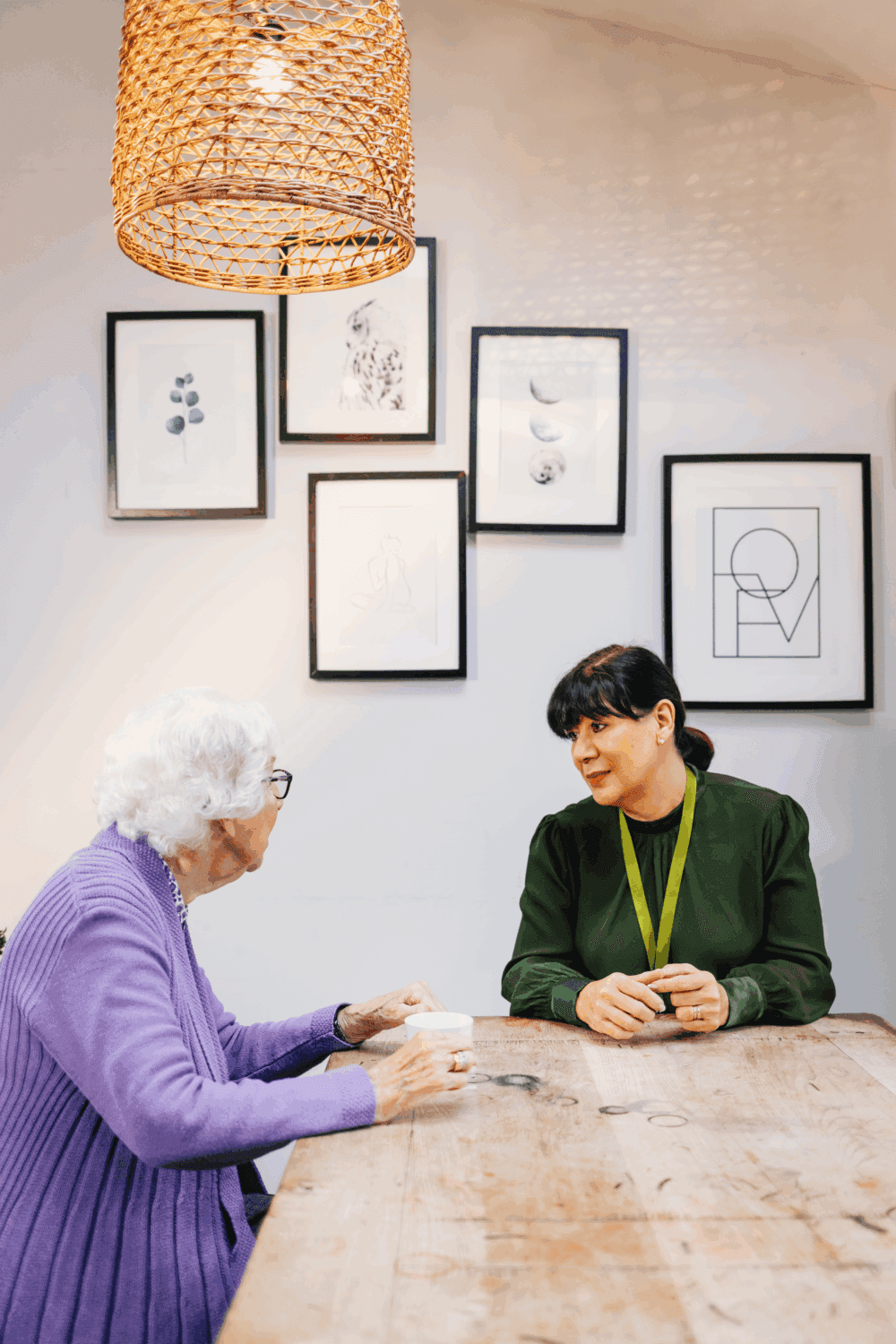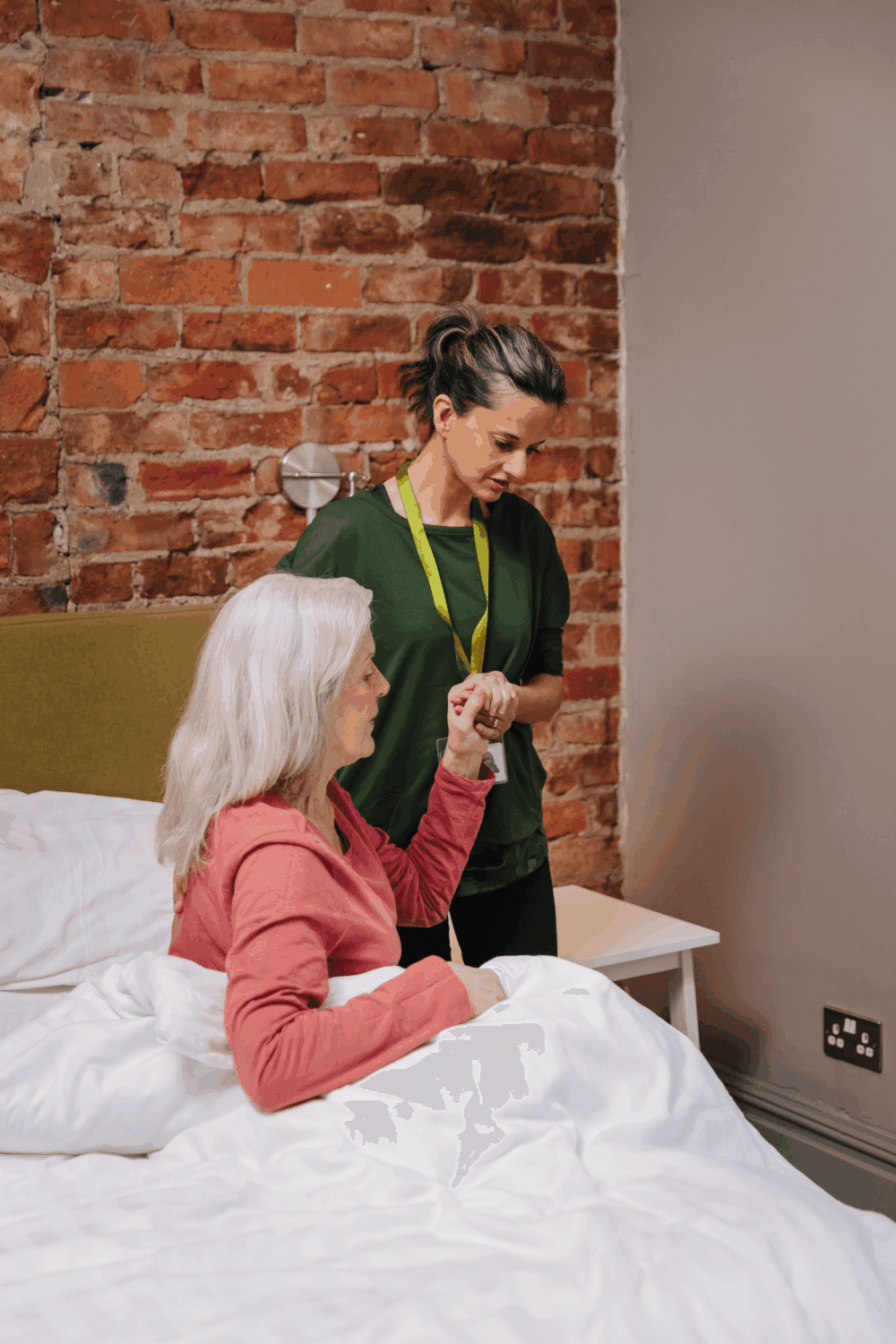The Benefits of Home Care for Elderly People
As we age, many of us begin to need extra support with daily tasks, personal care, and health management. But needing help doesn’t mean giving up autonomy, comfort, or dignity. Home care allows older adults to remain in the place they know best—while receiving the support they need to live well.

At Home Instead, we believe that getting older shouldn’t mean losing independence or comfort. Our personalised home care services are designed to help people live well in the place they know best – their own home. From companionship and everyday support to more specialised care, we’re here to make life easier, safer, and more fulfilling for you and your loved ones.
What is home care?
Home care (also called domiciliary care) refers to support provided in someone’s own home, rather than in an institutional setting. This support can range from light help with housekeeping and companionship to more intensive personal care or medical assistance. The goal is to tailor assistance to each person’s unique needs, enabling aging in place with dignity. You can learn more in our guide to what home care is.

Why Choose Home Care?
Better wellbeing and high satisfaction
Independent research suggests home-delivered support can match hospital outcomes for selected older patients while improving satisfaction. The University of Oxford’s “Hospital at Home” trial reported comparable six-month outcomes and higher patient satisfaction for care at home versus hospital admission.
The World Health Organization also advocates helping older people remain at home where possible (via home-help/home-care services) to support wellbeing.
Familiar surroundings support comfort (especially with dementia)
Staying among personal possessions, neighbourhoods and routines can reduce stress and confusion.
For people living with dementia, familiarity particularly matters: a peer-reviewed study found higher quality of life, activity levels and social connectedness for those with dementia living at home versus in institutions.
The Oxford research team also found participants were less likely to develop acute confusion (delirium) after one month when cared for at home.
Independence and control over daily life
Home care keeps the older adult at the centre of decisions such as when to eat or sleep, who visits, how the home feels, while still receiving tailored support. Research shows that interventions that maintain independent living can improve perceived health and self-efficacy in older adults.
Easier family involvement
At home, family and friends can visit naturally – sharing meals, watching TV, or staying longer – without set visiting hours or schedules. This often keeps relationships and support networks stronger, leading to improved happiness and overall wellbeing.
Flexible, scalable support
You can start small (for example just a bit of companionship or home help) and add services as needs change, up to live-in or round-the-clock care. That flexibility means you’re not paying for care that you or your loved ones don’t yet need.
Stay connected to community
Remaining at home helps people keep local ties such as neighbours, shops, clubs, and places of worship. This helps combat isolation and sustains a sense of belonging, leading to improved wellbeing and happiness.
Keep beloved pets
Pets are part of the family for many older adults. Home care makes it far easier to stay together with pets, supporting comfort and routine.
Stronger one-to-one relationships with carers
Because care happens in your own environment, carers can learn your preferences and life story, building a trusting, relationship-led approach. That’s why all our Care Professionals are matched for personality and interests, so they become a trusted and welcome part of you or your loved one’s daily routines.
Comfort for palliative and end-of-life care
Many people prefer to receive palliative or end-of-life support at home, surrounded by familiar things and loved ones. The ONS VOICES survey provides evidence on people’s experiences and preferences around care for long term illness or end of life.
What types of home care does Home Instead provide?
At Home Instead, we understand there’s no place like home, so our home care offering aims to help elderly individuals retain independence and stay in familiar surroundings.
We offer a number of bespoke services which can be tailored to your needs, including companionship, home help and housekeeping, personal care and grooming, night care, respite care, Alzheimer’s and dementia care, cancer support, neurological care, postoperative and recovery care, vital signs monitoring, diabetes monitoring, and more.
Our Care Professionals are highly trained to deliver the individualised services you need, so no matter what type of home care you require, we can provide a tailored service that suits you or your loved one – reach out to the team at Home Instead to learn more.
We’re an award-winning home care provider and part of a worldwide organisation devoted to providing the highest-quality relationship-led care for older people in their own homes. Arranging care for yourself or your loved one shouldn’t be stressful, so whatever questions you would like answered, feel free to reach out to the Home Instead team to discuss your needs.
